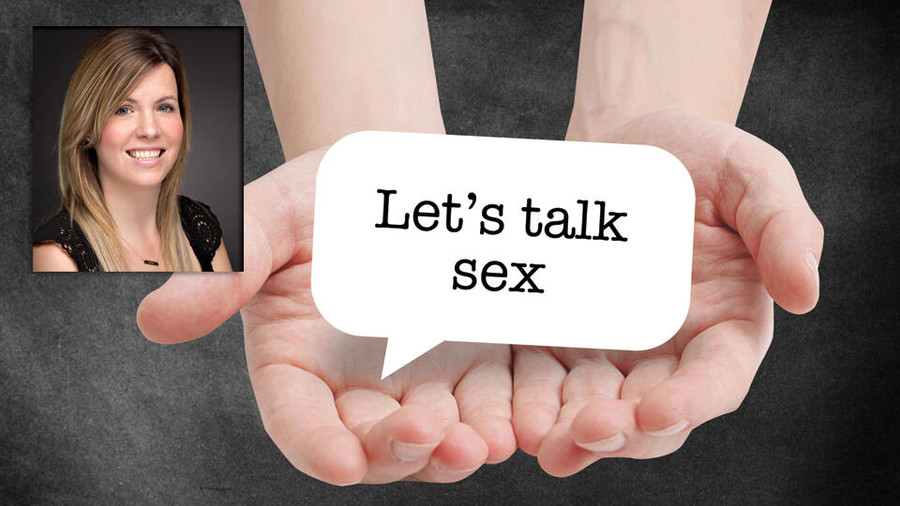It is no secret that sex education is completely lacking in our culture and society today. No matter what generation someone was born into, chances are the sex education they received was either completely false, misguided, judgmental, or harmful — and that’s if they even received a formal “sexual education” in the first place. So, given this tumultuous and highly variable landscape, where exactly do retailers fit into the mix?
One might argue that pleasure product retailers are the new wave of sex-ed teachers for adults. It is their duty to help adults unlearn and then relearn what sex is and what sex could be. And that’s an important job to pursue because according to a recent survey conducted by CalExotics, 62 percent of pleasure product retailers believe that their customers have been negatively affected by their sex-ed experiences. That’s a massive percentage, especially given the fact that these are folks who are already shopping for pleasure products.
How do retailers show up as sex-ed teachers already? At its most basic level, retailers make themselves available to answer questions. This is key in a world where people often feel judged or uncomfortable voicing their questions aloud. What’s really interesting, from an educational perspective, is that the questions retailers are getting from customers go far beyond product recommendation or specs. In fact, according to the survey, the most common questions retailers are getting include:
- How can I please my partner? — 77 percent of retailers surveyed
- How can I spice up my relationship? — 77 percent of retailers surveyed
- Is __________ normal? — 73 percent of retailers surveyed
- How can I introduce __________to my partner/ask my partner for __________? — 69 percent of retailers surveyed
- How can I have an orgasm during intercourse? — 69 percent of retailers surveyed
- How can I increase my partner’s libido? — 65 percent of retailers surveyed
- What is __________ (terminology they read online)? — 58 percent of retailers surveyed
- How long should sex last? — 31 percent of retailers surveyed
As anyone in the industry would conclude, the answers to these questions involve comprehensive, in-depth responses that can have a major impact on a person’s knowledge, perception, confidence and actions. In other words, these are major questions, folks; and that can certainly feel like a big undertaking until you recognize one very important factor: unlike some sex-ed teachers of the past, you get to be the compassionate teacher.
What does being a “compassionate teacher” mean? It means that just by being receptive, understanding, non-judgmental and open, you are already providing people with an incredibly important lesson in sex education. Just remember that your own sex-ed background may be shaping the way you view or react to their questions, which adds another layer of complexity. It’s important to lead with compassion and approach each customer with acceptance. By doing so, you are impacting them in a positive way and more than you even realize.
How else are retailers showing up as sex education teachers now? They are using sex-positive marketing (72 percent), offering sexual health merchandise (68 percent), providing ongoing training (60 percent), incorporating sex-positive corporate culture (56 percent), and using sex-positive displays (52 percent). These percentages are on the rise, but there’s always room to grow. In fact, many retailers say that they’d like to start incorporating things like showcasing books and resources, doing more community work and offering classes.
Some retailers may be skeptical about these tactics. If the goal is to sell sex toys, why do we need to bother with putting educational materials out into the world, particularly if they don’t correlate with a specific SKU? The answer is simple: the more we can collectively educate the population on sex, sexuality, gender, pleasure and more, the more these topics become comfortable, mainstream and part of normal, everyday discussion versus being shameful or hush-hush.
Just imagine a world where anal beads are so widely accepted that every single person, no matter their sexual orientation or gender, had some in their nightstand. Think about a future where all women — all women — felt empowered to masturbate without the shame. What if kegel weights were celebrated publicly as though they were Peloton bikes? What if butt plugs were so commonplace and widespread, you’d be hard-pressed to find someone who didn’t own a few?
The point is that the more retailers put themselves out there as teachers, rather than just sales people, the more customers they will ultimately reach. And listen, none of this will happen overnight — but it will happen the more retailers jump into this very much-needed role and present themselves as the compassionate leaders and educators they are. More compassion and education leads to a reduction of stigma and shame, which leads to a whole new world of sexual understanding, which ultimately leads to more sales.
So where can you start? Take a surveillance of what you have done so far to position your business as an educational tool. Do you offer classes? Do you post on social media about a variety of sexual education topics instead of just about toys? Is the language you use on your in-store signage sex-positive and judgment-free? Find a baseline for where you are today and then find ways to do more (and ultimately be more) for your customers. If 62 percent of customers are still negatively impacted by their sex-ed upbringing, there is an obligation to help massively reduce that number for future generations to come.
In February 2011, Nichole Grossman joined the team at CalExotics and JOPEN as social media coordinator. Over the years, she has worked in various areas of the marketing department, including roles as marketing manager and assistant director of marketing. Today, Nichole serves as the director of marketing for CalExotics and JOPEN.








